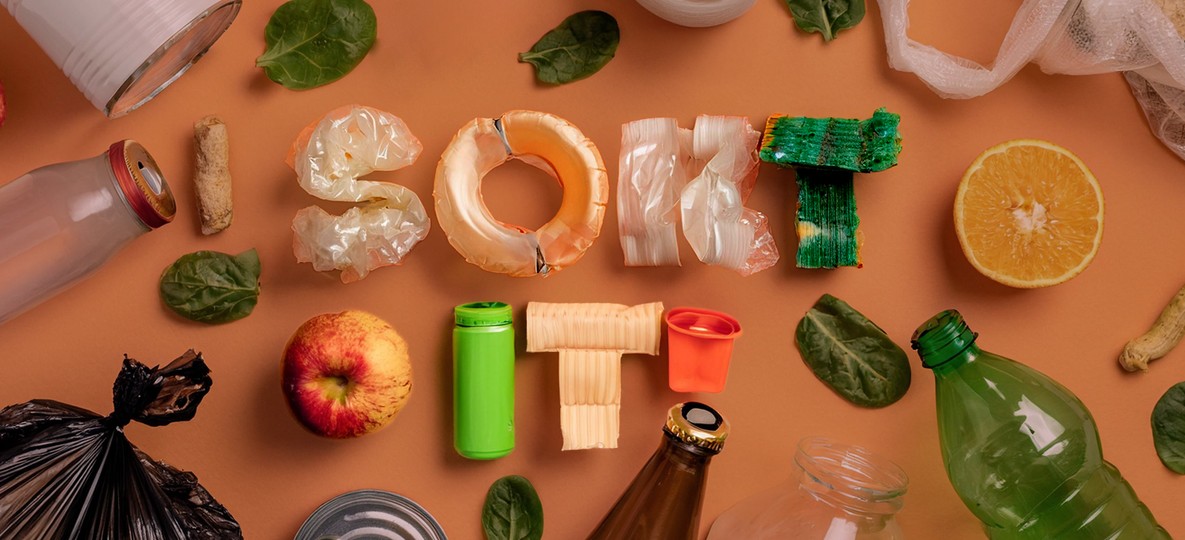
Recycling
is one of the easiest and most impactful ways to contribute to a more
sustainable planet.
However,
even well-intentioned recyclers can make mistakes that reduce the effectiveness
of recycling efforts. In Ireland, recycling contamination is a major issue that
can lead to entire batches of recyclable material being sent to landfill
instead of being reused. By identifying and avoiding common recycling mistakes,
we can significantly improve recycling outcomes both at home and at work. In
this post, we’ll discuss some of the most common recycling mistakes and provide
tips on how to avoid them.
1.
Placing Non-Recyclable Items in the Recycling Bin
One of
the most common mistakes people make is assuming that everything can be
recycled. Items such as soiled or dirty plastic bags, disposable coffee cups, and greasy pizza
boxes are often mistakenly placed in recycling bins. These items can
contaminate recyclable materials, making the whole batch unrecyclable.
Tip: Always check your local council’s
guidelines on what can and cannot be recycled. In Ireland, the key recyclable
items are clean plastic bottles and containers, paper, cardboard, and cans.
Items like soiled and dirty plastic bags, soft plastics, and food-soiled packaging should not be
placed in the recycling bin (Home).
2.
Not Cleaning Recyclables Properly
Food
residues and liquids left in containers can contaminate other recyclable
materials, rendering them unfit for recycling. For example, a jar of peanut
butter that hasn’t been rinsed can ruin an entire batch of paper or cardboard
that comes into contact with it.
Tip: Take a few moments to rinse out
bottles, jars, and containers before placing them in the recycling bin. This
helps ensure that the materials can be properly processed without
contamination.
3.
Recycling Plastic Bags and Soft Plastics
In
Ireland, plastic bags and soft plastics are a common source of recycling
contamination. While many people assume they are recyclable, these items can
cause issues in recycling plants by jamming machinery. Soft plastics like cling
film, crisp packets, and shopping bags should not be placed in household
recycling bins.
Statistic: According to Repak, an organisation
dedicated to recycling packaging in Ireland, only 32.7% of plastic
packaging was recycled in 2022 (Repak). Properly segregating soft
plastics from recyclable materials is crucial to improving this rate.
Tip: Many supermarkets and large
retailers offer dedicated bins for recycling soft plastics. Use these
collection points for items like plastic bags and plastic film instead of your
household recycling bin.
4.
Recycling Coffee Cups and Takeaway Containers
Disposable
coffee cups and certain takeaway containers are another common mistake. While
they may seem like recyclable materials, most disposable coffee cups are lined
with plastic, which makes them difficult to recycle. Similarly, many takeaway
containers are contaminated with food, making them unsuitable for recycling.
Tip: Instead of recycling, look for
dedicated composting solutions for food-contaminated containers or switch to
reusable coffee cups and food containers. Many cafes now offer discounts if you
bring your own cup.
5.
Ignoring the “Check Locally” Label on Plastics
Some
plastic items, especially those labelled with a recycling symbol and a number,
might not be recyclable through your local system. These items often require
specialised recycling facilities that are not available in all regions. The
label "check locally" means that while the material might be
technically recyclable, it isn’t accepted by all recycling programs.
Tip: Before recycling plastic items with
unfamiliar symbols, visit your local council’s website to check what types of
plastics are accepted in your area.
6.
Not Flattening Cardboard Boxes
Large,
unflattened cardboard boxes take up a lot of space in recycling bins and can
cause inefficiencies in the collection process. If not properly flattened, they
may also not be picked up for recycling.
Tip: Always flatten cardboard boxes
before placing them in the recycling bin to save space and make collection
easier.
7.
Recycling Electronics in the General Recycling Bin
Old
batteries, mobile phones, and other electronic devices should never be thrown
into general recycling bins. Not only can they cause fires in waste facilities
due to the batteries inside, but they also contain materials that need to be
processed separately from standard recyclables.
Statistic: In 2022, Ireland collected 10.35
kg of Waste Electrical and Electronic Equipment (WEEE) per capita,
surpassing the EU minimum collection target (Central
Statistics Office).
However, many electronics still end up in general waste streams.
Tip: Always bring old electronics to a
dedicated WEEE collection point. These are available at recycling centres,
electronic stores, and even some supermarkets.
8.
Throwing Out Reusable Items
Finally,
one of the most wasteful mistakes is throwing out items that can be reused.
Many items, such as furniture, clothing, and appliances, can be repaired,
donated, or repurposed instead of being discarded.
Tip: Before throwing something away,
consider whether it can be donated, repurposed, or repaired. Many communities
have “freecycling” groups where people can give away or pick up used items.
Conclusion
Improving
recycling efforts at home and at work starts with avoiding common recycling
mistakes. By being more mindful of what can and cannot be recycled, cleaning
recyclables, and using the appropriate disposal methods for items like
electronics and soft plastics, we can significantly reduce waste contamination
and improve Ireland’s recycling rates.
Statistic: In 2021, Ireland’s overall
recycling rate was 41% for municipal waste, with more progress needed to
meet the 50% target set for 2025 (Home). By reducing mistakes, we can help
reach these goals and support a more sustainable future.
#SortItCampaign
#RecyclingMistakes #Sustainability #EcoFriendly #WasteManagement
Let’s
all take a moment to rethink how we recycle and help Ireland move towards a
more sustainable and circular economy.